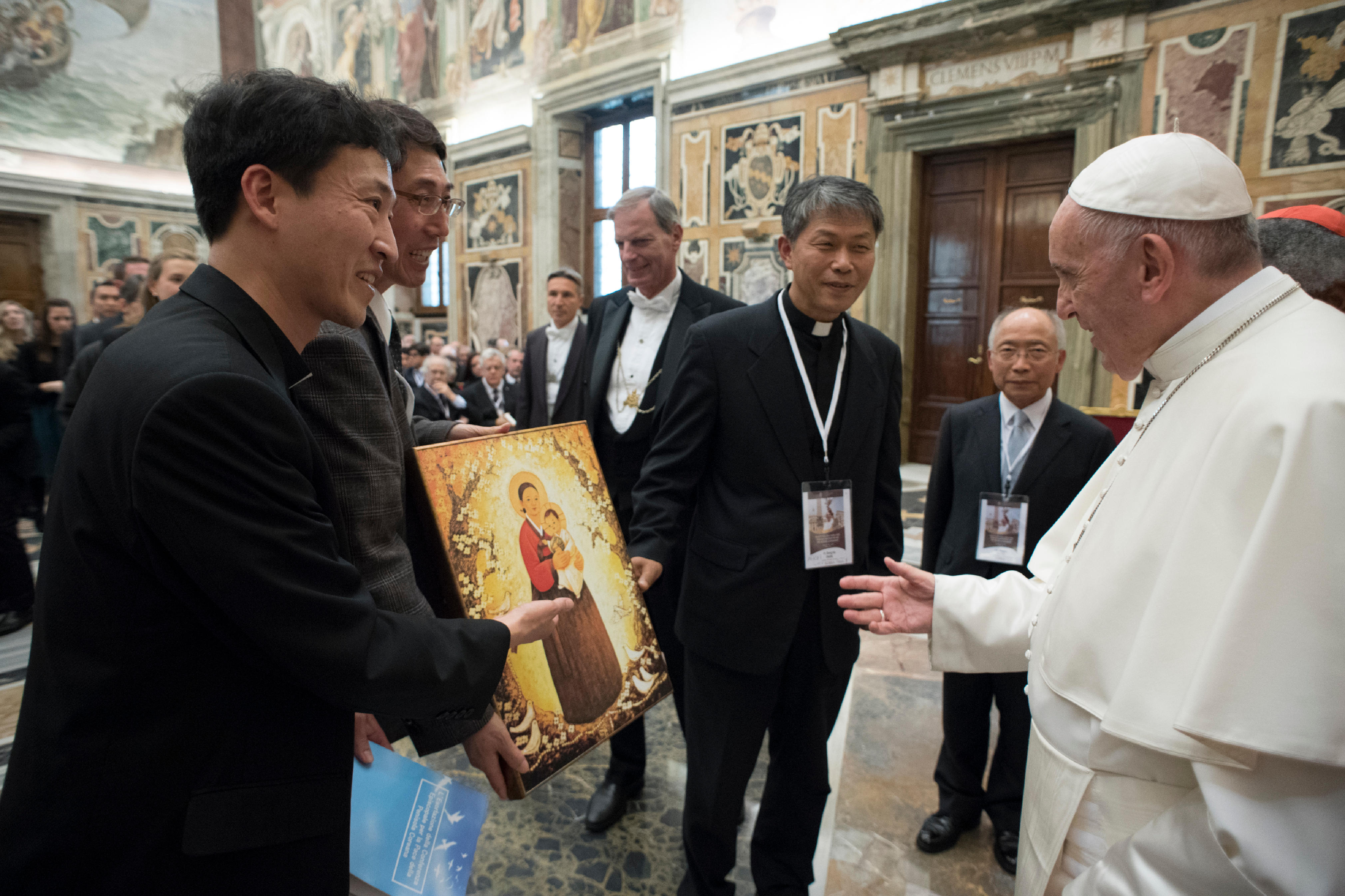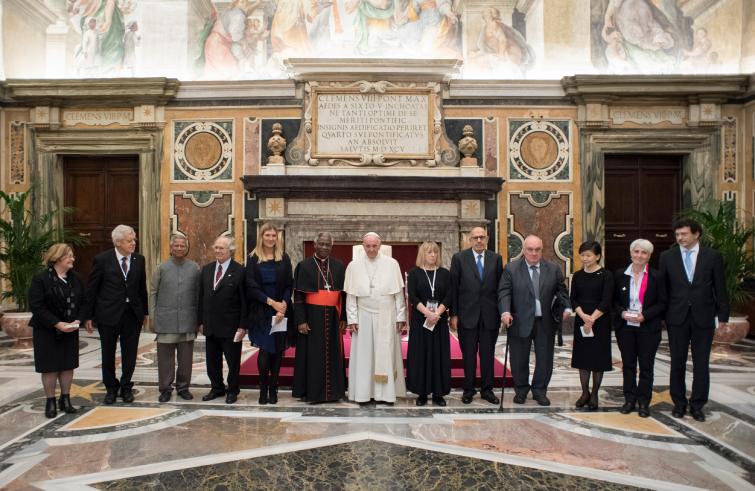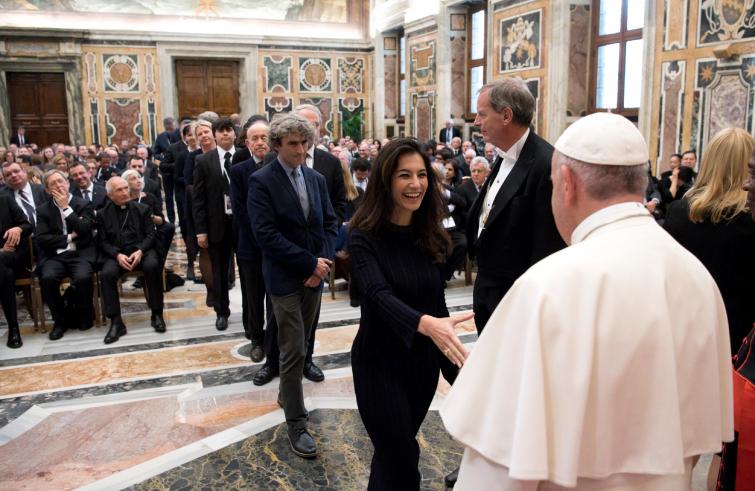Nuclear weapons
It’s not utopia but sound realism. Pope Francis thus defined the ambitious goal of integral disarmament addressing participants in the Vatican Symposium. Nuclear weapons have “catastrophic humanitarian consequences”, his cry of alarm against the “logic of fear”

Nuclear weapons have “catastrophic humanitarian and environmental consequences” and they are the result of “a mentality of fear” afflicting the planet. Pope Francis conveyed his cry of alarm on November 10 during an audience with participants in the international Symposium called: “Prospects for a World Free from Nuclear Weapons and for Integral Disarmament,” organized by the Vatican’s Dicastery for Promoting Integral Human Development. The Holy Father firmly condemned the threat of resorting to nuclear weapons – that is spread also through digital communication – and exhorted to set aside “bleak pessimism” to the benefit of “healthy realism”, such as the one that led to the “historic vote” at the United Nations establishing that nuclear weapons must be taken as “an illegal means of warfare.” Fifty years after Populorum progressio, “integral human development is the beneficial path that the human family is called to travel.” And the integral disarmament called for by John XXIII in Pacem in terris is yet to be accomplished. The Symposium, ongoing in the Vatican until November 11, is attended by eleven Nobel Peace Laureates, top United Nations and NATO officials, diplomatic representatives of several countries including Russia, USA, South Korea, Iran, along with leading experts, heads of major foundations and of civil society organizations actively engaged in this field. Participants include representatives of Bishops Conferences and of Churches, at ecumenical and interreligious level, along with delegations of academics from Universities in the United States, Russia, and European Union.

“If we also take into account the risk of an accidental detonation as a result of error of any kind, the threat of their use, as well as their very possession, is to be firmly condemned. For they exist in the service of a mentality of fear that affects not only the parties in conflict but the entire human race”
The escalation of the arms race continues unabated and the price of modernizing and developing weaponry, not only nuclear weapons, represents a considerable expense for nations. As a result, the real priorities facing our human family, such as the fight against poverty, the promotion of peace, the undertaking of educational, ecological and healthcare projects, and the development of human rights, are relegated to second place.
“Nor can we fail to be genuinely concerned by the catastrophic humanitarian and environmental effects of any employment of nuclear devices.” The Pope’s cry of alarm: “International relations cannot be held captive to military force, mutual intimidation, and the parading of stockpiles of arms.”
Weapons of mass destruction, particularly nuclear weapons, create nothing but a false sense of security. If we don’t want to jeopardize the future of humanity we must learn from the witness given by the Hibakusha, the survivors of the bombing of Hiroshima and Nagasaki: “May their prophetic voice serve as a warning, above all for coming generations!” Nuclear technologies are now spreading, also through digital communications, and the instruments of international law have failed to prevent new States from joining those already in possession of nuclear weapons. The Pope spoke of “disturbing scenarios” that in the context of contemporary geopolitics add on to the threat of terrorism or asymmetric warfare.

Yet, although we might succumb to “bleak pessimism”, “a healthy realism continues to shine a light of hope on our unruly world.” Francis mentioned the recent vote at the United Nations that considered nuclear weapons an illegal means of warfare and filled a significant juridical lacuna, inasmuch as chemical weapons, biological weapons, anti-human mines and cluster bombs are all expressly prohibited by international conventions. This was mainly the result
“of a humanitarian initiative sponsored by a significant alliance between civil society, states, international organizations, churches, academies and groups of experts.”
In this respect, the delegation of 11 Nobel Peace Laureates attending the international Symposium handed to the Pope a document that Francis received with “grateful appreciation”.
Francis mentioned the 50th anniversary of the Encyclical Populorum progressio, “a memorable and still timely document in which Paul VI set forth the notion of “integral human development”, namely, aimed to “foster the development of each man and of the whole man.”
“We need, then, to reject the culture of waste and to care for individuals and peoples labouring under painful disparities through patient efforts to favour processes of solidarity over selfish and contingent interests.” The Pope concluded his speech with this invitation and added that only
“progress that is both effective and inclusive can achieve the utopia of a world free of deadly instruments of aggression, contrary to the criticism of those who consider idealistic any process of dismantling arsenals.
The teaching of John XXIII, who clearly indicated the goal of integral disarmament, along with that of Paul VI, upon the fiftieth anniversary of Populorum progressio remain ever valid.